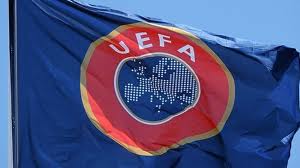By Andrew Warshaw
April 8 – The two umbrella organisations representing Europe’s clubs and leagues have given their wholehearted support to UEFA’s important new financial monitoring rules designed to beef up the previously flawed system and which, tellingly, no longer include the words “fair play”.
Both the European Club Association and the European Leagues welcomed the somewhat wordy ‘Club Licensing and Financial Sustainability Regulations’ that are designed to close off the loopholes that were cynically exploited by some clubs under a decade of supposed financial fair play.
The ECA said the new rules represented “a vital step towards addressing the most pressing financial challenges faced by European clubs of all sizes.”
“These new Regulations offer a genuine path to stability and sustainability for clubs of all sizes because they directly tackle costs for the first time, while also retaining, evolving and strengthening the most effective elements of the current Financial Fair Play system,” said an ECA statement.
The most eye-catching element is a squad cost rule, to be gradually phased in, that will in three years’ time cap fees and salaries of men’s first-team squads at 70% of revenue, crucially over a calendar year instead of on a season by season basis.
“The shift to reporting over a calendar year and transparency on financial and sporting sanctions will allow breaches to be detected and sanctioned much more quickly and efficiently, with the combination of financial and sporting sanctions serving as a significant control mechanism,” the ECA said.
As a result of UEFA collaborating with the ECA in drawing up the rules, “the new regulations offer a genuine, considered and comprehensive pathway to financial sustainability for all European clubs,” the ECA added.
Meanwhile the European Leagues, which represents all the biggest leagues across the continent, said the new arrangements would “improve the long-term financial sustainability of clubs across Europe.”
“Although our member leagues had various opinions on some elements of the new regulations, a large majority of European Leagues’ members agreed on important matters such as strengthened overdue payable rules, the football earnings rule, squad cost and strengthened sanction mechanisms.”
Under the new system, by 2025 clubs playing in UEFA competitions will be limited to spending 70% of their revenue on salaries and transfers or face financial as well as sporting sanctions.
Clubs who break the rules could be hit with transfer bans, demotions from one European competition to another, points deductions and prevention of selecting certain players in UEFA competitions.
“The deterrents are there,” said Andrea Traverso, UEFA’s director of financial sustainability.. “As from a certain moment (clubs) would be so harshly penalized that I think it would be quite dissuasive.”
“What we have tried not to do is to go against the principle of competitiveness. Plus, the sanctions will be much more transparent than before. These were among the criticisms in the past and we have taken them on board.”
Outspoken Spanish league boss Javier Tevas has long accused the likes of Paris St Germain and Manchester City, both of whom have mega-rich Middle East owners, of “financial doping”.
The new regulations will ensure that all clubs will have to be stable, solvent, and keep their costs under control. The richest will still likely remain out in front but the idea is that no-one will be able to exploit the rules as happened under a decade of FFP.
“We believe the way (the rules) are defined is becoming more and more difficult for clubs to get around,” Traverso said, acknowledging however that “our capacity of investigations are somehow limited because we, as you well know, are not the police.”
He was forced to acknowledge, however, that the rules would not necessarily achieve greater competitiveness.
“Competitive imbalance cannot be addressed simply by financial regulations. It must be addressed in combination with sporting measures and other measures. This is why we changed the name. The name fair play was interpreted as creating a level playing field, we wanted to change that perception.”
Contact the writer of this story at moc.l1745049505labto1745049505ofdlr1745049505owedi1745049505sni@w1745049505ahsra1745049505w.wer1745049505dna1745049505

